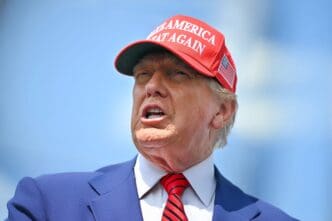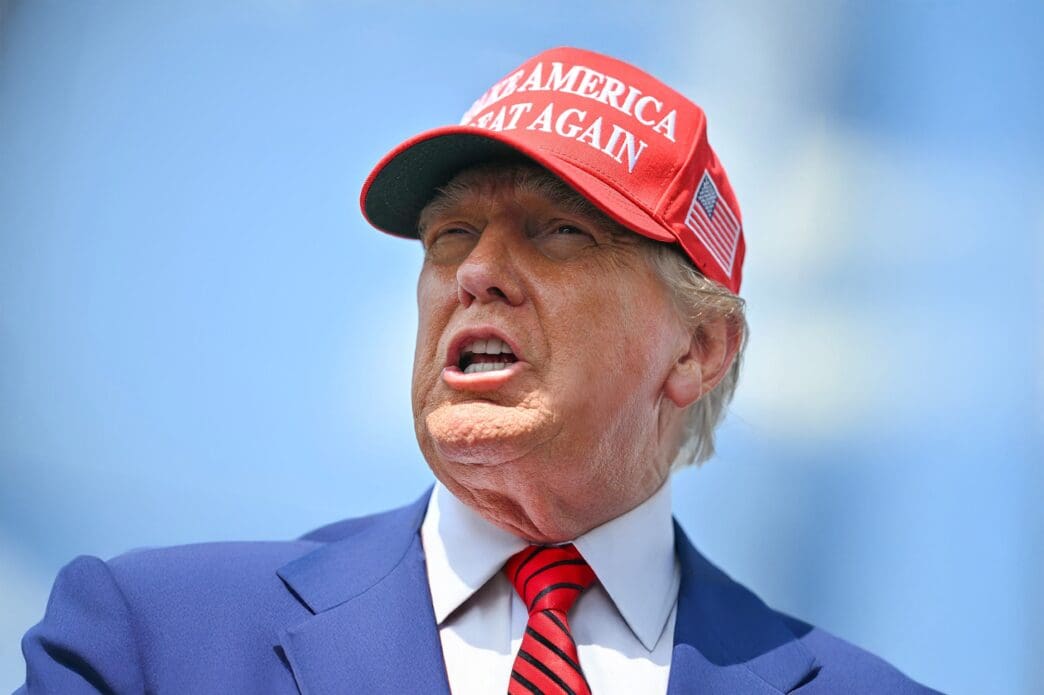Executive Summary
- President Trump’s “America First” foreign policy has significantly evolved, shifting from traditional isolationist expectations towards prioritizing personal prestige and global power projection.
- This evolution is demonstrated by actions such as threatening to disarm Hamas in Gaza, acknowledging military operations off Venezuela, and offering a conditional $20 billion economic aid package to Argentina.
- Analysis suggests “America First” has largely transformed into “Trump First,” driven by Trump’s pursuit of personal influence, legacy building, and a “businessman’s eye” approach to international relations.
The Story So Far
- President Trump’s recent foreign policy actions signify an evolution of his “America First” doctrine, moving beyond traditional isolationism to an assertive projection of American power globally, often driven by a pursuit of personal prestige and legacy. This approach also incorporates geopolitical strategies, such as countering China’s influence, and addresses domestic concerns like fentanyl trafficking, even as these policies risk deeper international entanglements and diverge from conventional diplomatic norms.
Why This Matters
- President Trump’s evolving “America First” approach increasingly prioritizes personal prestige and global power projection, leading to a more assertive foreign policy characterized by explicit threats of military intervention in Gaza and Venezuela, and conditional economic aid to Argentina. This shift risks deeper US military entanglements and direct geopolitical confrontations, potentially challenging the traditional isolationist expectations of his political base.
Who Thinks What?
- CNN Senior Reporter Stephen Collinson’s analysis suggests President Trump’s “America First” approach has evolved to prioritize personal prestige and global power projection, often diverging from traditional isolationist expectations and sometimes transforming into “Trump First” as he seeks individual influence and deal-making.
- President Trump’s actions, including threatening to disarm Hamas, conducting military operations off Venezuela, and offering conditional aid to Argentina, indicate an assertive global stance aimed at applying American power, supporting populist allies, and countering geopolitical rivals like China.
- Critics and analysts raise concerns that Trump’s military operations off Venezuela amount to extra-judicial killings and geopolitical maneuvers to destabilize the government, while the conditional $20 billion aid to Argentina could be seen as interference in a foreign election, and a deeper US military role in Gaza would contradict his base’s desire to avoid Middle East conflicts.
President Donald Trump’s recent foreign policy actions, including an explicit threat to disarm Hamas in Gaza, military operations off Venezuela, and a conditional $20 billion economic aid offer to Argentina, indicate a significant evolution in his “America First” approach. These developments, analyzed by CNN Senior Reporter Stephen Collinson, suggest a shift towards prioritizing personal prestige and global power projection, even as they diverge from traditional isolationist expectations and occurred concurrently with a US government shutdown.
Trump’s Expanding Global Engagements
On Tuesday, President Trump issued a stark warning to Hamas, stating the group would be disarmed if it did not relinquish its weapons in Gaza, a declaration that has fueled speculation about a potential direct US military role in the region. Simultaneously, Trump acknowledged military actions off the coast of Venezuela, where US forces reportedly “obliterated another speedboat” in what has been described as a “legally dubious war against drug cartels.”
Further demonstrating an assertive global stance, Trump proposed a substantial $20 billion economic bailout for Argentina. This offer was explicitly conditioned on Argentine voters supporting his “scandal-hit populist pal” President Javier Milei. The President also publicly entertained Ukraine’s request for Tomahawk cruise missiles, which possess the capability to strike deep within Russia, a move that could risk the direct US-Moscow confrontation he previously cautioned against during his 2024 campaign.
These actions, particularly the potential for deeper military entanglement and conditional foreign aid, contrast with the “America First” philosophy that many of his supporters associate with a focus on domestic affairs. Notably, these developments followed a day after President Trump reportedly brokered a significant ceasefire and hostage return deal between Israel and Hamas, a more traditional diplomatic success.
Shifting Interpretation of “America First”
According to analysis, Trump’s foreign policy is more accurately characterized as an opposition to internationalism rather than strict isolationism, as he increasingly embraces applying American power on the global stage. This approach is evident in past actions, such as launching punishing air strikes against Iran’s nuclear sites, which aimed to project strength without committing to prolonged ground wars.
The analysis suggests that “America First” has, in many instances, transformed into “Trump First,” with the President seeking to secure personal prestige, bolster his legacy, potentially earn a Nobel Peace Prize, and solidify his standing among world leaders. This pursuit of individual influence is often observed as a driving force behind his often erratic and unconventional foreign policy decisions.
President Trump also views the world through a “businessman’s eye,” seeking deals and financial opportunities for the United States, and at times, for his family’s enterprises. His administration has also strived to promote global populism, sometimes even at the expense of undermining centrist governments in allied nations.
Specific Policy Applications
Argentina Bailout and Geopolitical Rivalry
The official justification for President Trump’s $20 billion bailout offer to Argentina cited concerns about its reeling economy posing a risk of regional contagion. However, Trump and Treasury Secretary Scott Bessent openly indicated the primary motivation was to support President Javier Milei, whom Trump described as “MAGA all the way,” aligning with the President’s own political movement.
This conditional offer, which could be seen as interference in a foreign election, draws parallels to the events that led to Trump’s impeachment, where military aid to Ukraine was linked to an investigation into then-candidate Joe Biden. The Argentina initiative also fits into a broader geopolitical strategy by the Trump administration to counter China’s growing influence in the Western Hemisphere, particularly regarding access to critical resources like lithium and copper.
Venezuela Operations and Middle East Quagmire Concerns
The unilateral US military attacks on alleged cartel targets off Venezuela align with a core tenet of the MAGA philosophy: combating fentanyl trafficking, an issue that resonates with many working-class voters. However, critics within the US argue these operations amount to extra-judicial killings that circumvent Congress’s authority to declare war, increasingly viewing them as a hard-power geopolitical maneuver to destabilize the government of President Nicolás Maduro.
Regarding Gaza, while President Trump’s success in brokering a ceasefire and hostage return was a more traditional diplomatic achievement, his subsequent warning to disarm Hamas has raised concerns about a deeper US military role. Analysts, including Andrew Miller, a former deputy assistant secretary of state, suggest that a significant US military presence in Gaza would contradict a central tenet of Trump’s political movement—avoiding Middle East conflicts—and could test the loyalty of his base.
Key Takeaways
President Trump’s current foreign policy is characterized by a complex and often contradictory approach, blending traditional diplomatic successes with unilateral interventions and conditional aid. This evolving strategy, articulated under the banner of “America First,” increasingly emphasizes personal influence and the projection of American power, often diverging from conventional expectations and raising questions about its long-term implications for global stability and US domestic political support.








